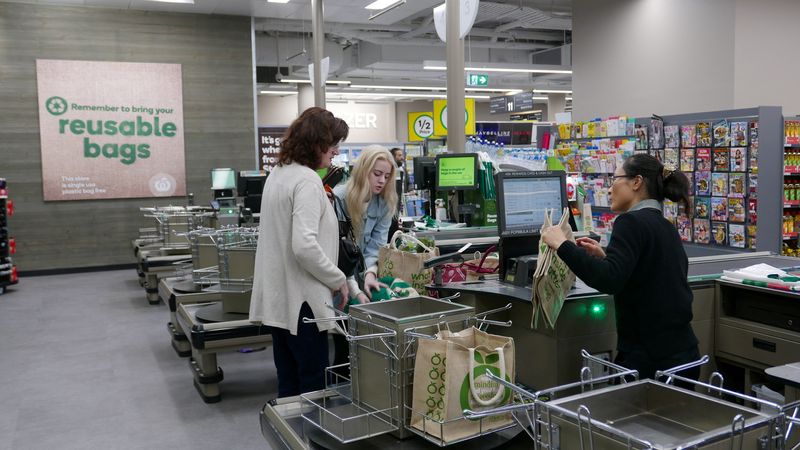By Byron Kaye
SYDNEY (Reuters) -Australia could impose billion dollar fines on big supermarket chains that fail to comply with an industry code of conduct, the federal government said on Monday as it seeks to address concerns that suppliers have been unfairly squeezed on pricing.
Grocers with more than A$5 billion ($3.3 billion) in annual revenue - currently Woolworths, Coles, Germany's ALDI and wholesaler Metcash - will be made to comply with the code of conduct that has until now been voluntary, the federal government said.
The move comes after a report by former competition minister Craig Emerson (NYSE:EMR) found the current code was "failing to address the imbalance of bargaining power between supermarkets and their suppliers, including farmers", the federal government said.
The supermarkets will face fines of up to 10% of annual turnover for breaches of the code which mainly covers dealings with suppliers. Woolworths reported Australian food sales of A$48 billion in 2023, Coles took A$37 billion and Metcash had A$10 billion. ALDI does not disclose its earnings.
"This is about getting a fair go for families and a fair go for farmers," a joint statement by Treasurer Jim Chalmers, agriculture minister Murray Watt and competition minister Andrew Leigh said.
The federal government will prioritise passing laws to make the code mandatory, it said in a separate statement.
The review is one of six government inquiries into the country's supermarket sector which commentators say is one of the most concentrated industries in the world. Woolworths and Coles, the No. 1 and No. 2 grocers, together sell two-thirds of all Australian groceries.
Representatives for Woolworths and Coles said their companies would consider the report's recommendations and the government's response and were committed to supporting a sustainable grocery sector.
An ALDI Australia spokesperson said the company supported making the code of conduct mandatory and was reviewing the final recommendations.
A Metcash spokesperson said the company was committed to the code of conduct and would keep working with suppliers to be their partner of choice.
The National Farmers Federation said the changes would make it easier for grocery suppliers to speak up when they believed a large customer was misusing its market power to drive wholesale prices lower.
"These changes should finally give the code the clout it needs to protect farmers," the federation's acting CEO, Charlie Thomas, said.
"To protect growers we need a code with strong enough deterrents to influence behavior in the supply chain."

A separate inquiry into consumer pricing by the Australian Competition and Commission is due to report in February 2025.
($1 = 1.5074 Australian dollars)